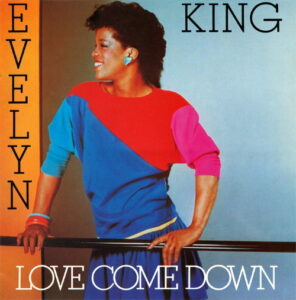Tommy Sims has taken a slow and steady route to become one of today’s top songwriters and producers and perhaps the most influential force in modern gospel. Born in Chicago and raised there and in Michigan, Sims grew up in a religious household where gospel music was not only King, it was the only acceptable music. Later, through a stepbrother and some uncles, secular soul music became a part of Sims’ life. Sims began a mutual love of Gospel and Soul styles that continues to this day. He studied music at the University of Michigan and later traveled the country with various bands, honing his craft as a songwriter and performer.
He ultimately arrived in Nashville in the late 80s, and used it as his songwriting base from that day forward. In the early 90s Bruce Springsteen became an admirer and convinced Sims to join his band, ultimately becoming a mentor who educated Sims about rock and acoustic folk.
During the 90s, Sims’ songwriting talent became well known among other artists, though he remained a secret to the record-buying public. This changed when he co-wrote “Change the World” for Eric Clapton and Babyface. It was used in the John Travolta movie Phenomenon, became a #1 song and ultimately won the “Best Song” Grammy for 1996. “Change the World” changed Sims’ world and made him even more sought-after as a writer and producer. Perhaps more importantly, he became the center of a transformation in Nashville, as that city, traditionally known as a hub for Country music, became the center of a unique confluence of Gospel, Soul and Folk music that was one of the most interesting musical developments of the late 90s. Artists such as CCM mainstay Jon Gibson traveled there to record, and others, like California blue-eyed soul star Michael McDonald, actually moved there to be near the new, organic sounds emanating from Nashville .
While primarily known for his behind-the-scenes work, Sims moved out front and recorded his debut album, Peace and Love, in 2000. It is a masterpiece, smoothly flowing among a myriad of styles and impressing as a tribute to the various musicians and styles that have influenced Sims’ musical life. The title cut is a nod to the Winans and their soul/gospel pioneering, even featuring Marvin Winans in a duet with Sims. “Comin’ Home” recalls Thom Bell’s uptempo work with the Spinners; “Alone” hearkens the sound of classic Al Green circa 1972; and “A New Jam” is the best song Bobby Womack never made. “It Don’t Matter to the Sun” was recorded by Garth Brooks for his Chris Gaines album, but here is given a soulful interpretation by its writer. Perhaps the most beautiful (and biographical) song is “Write One This Way,” a songwriter’s prayer for the ability to write a powerful, meaningful song. Peace and Love did not receive major exposure, but was uniformly praised by critics and is worth seeking out.
Sims has continued to be a very busy man, writing and producing dozens of top gospel, CCM and soul performers, including the recent Darwin Hobbs bestseller, Broken. He is also beginning a new project called “Tommy Sims and the Positive Movement,” about which he has promised to provide SoulTracks with more information. Like Holland/Dozier/Holland in the 60s, Gamble & Huff in the 70s and Quincy Jones in the 80s, Sims is currently one of the few producers whose name on the credits of another artist’s album is reason enough to buy.
By Chris Rizik (2005)










